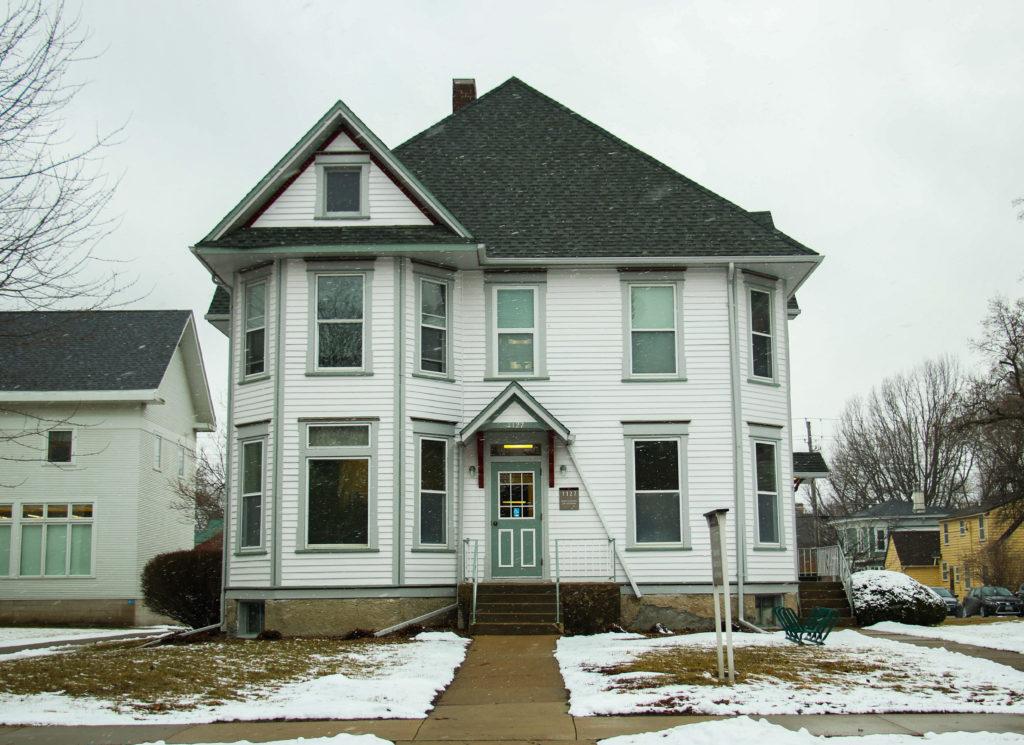The Center for Careers, Life, and Service (CLS) has recently launched multiple initiatives aimed at helping students explore and achieve their career, life and service aspirations after Grinnell. This new programming follows an extensive strategic planning initiative.
“From our First Year Advising Program, to the seven new Career Communities, to the new Senior Interview and Professional Development grants, the CLS team is building a holistic, comprehensive program to ensure our student[s] possess the knowledge, experiences, insights and connections to successfully realize their post-college goals,” wrote Mark Peltz, dean of Careers, Life and Service, in an email to The S&B.
“Career is the coming together of your personal life, your professional life and your civic life,” said Susan Sanning, assistant dean and director of service and social innovation at the CLS. “What do I care about? What do I want to make a difference in? What do I want to explore?”
Peltz noted that many of the recent additions to the CLS aim for students to conceptualize their post-collegiate endeavors from the onset of their years at Grinnell.
“In the past, far too many students waited until their senior year to start planning, and that is simply too late,” Peltz wrote. New programs like the First Year Advising Program intend to help students discover their values and explore how those values relate to both professional and non-professional goals.
“We are certainly seeing students engaged earlier in the exploration and post-college planning process, but we definitely have room to improve. The future will likely include greater collaboration with academic departments and members of the faculty, more fully developed Career Communities and expanded experiential learning opportunities for students (externships, internships, treks, symposia, etc.),” Peltz wrote.
Sanning made it clear that the addition of new programming does not correspond with an increase in tuition.

“The commitment to not making this [work] cost more for students, not affecting our operating budget is a pretty strong ethic we have in what we’re doing,” she said. “Mark [Peltz] has done a phenomenal job [of fundraising] and our alums are committed to this. They want to help and they want to be connected as well.”
In addition to keeping costs for students low, both Peltz and Sanning affirmed the value of social justice as central to new programming. The program provides, among other things, student advising and funding for unpaid internships. Sanning stated that as students transition into the later years of Grinnell and begin narrowing their post-graduate career options, the CLS hopes to help them integrate values such as social justice on a professional scale.
Peltz sees CLS funding for unpaid internships as an expression of the College’s commitment to social justice.
“Grinnell College was among the first colleges in the country to award funding to students to defray the expenses associated with unpaid internships. … Having multiple internship experiences prior to graduating is essential for today’s college graduate and, unfortunately, a number of internships are unpaid. As a result, these unpaid experiences tend to be pursued by only those students who can afford to live and intern for eight to ten weeks in a city without pay. Consequently, unpaid internships become a contributing influence [on] the wealth gap that exists in the U.S. Making these experiences more accessible to students ensures Grinnell graduates can ultimately compete for opportunities in industries where unpaid internship are [sic] common and often a gateway to full-time employment,” Peltz wrote.
In order to inform students of these new opportunities and to raise awareness of the CLS in general, the office has employed a number of unusual outreach strategies over the past year. These strategies included various themed events and even a live pony.
“We were kicking off the school year with several new initiatives, and we thought a Harry Potter themed event (with magic wands and a Patronus) would be fun,” Peltz wrote. “For many students, wrestling with the question of ‘what will I do after Grinnell’ can be anxiety-inducing and overwhelming. It need not be. By adding elements of fun and creativity to our programming, we hope students come to know the CLS as a place that is student-centered, friendly, caring and supportive.”
Peltz stressed that the ultimate goal of the CLS is to serve the Grinnell student body, and that all of the changes put in place in recent years have been aimed towards that purpose.
“I hope students regard the CLS as an invaluable resource focused on helping them identify, clarify, pursue and, ultimately, achieve their post-college goals,” Peltz wrote.






























































